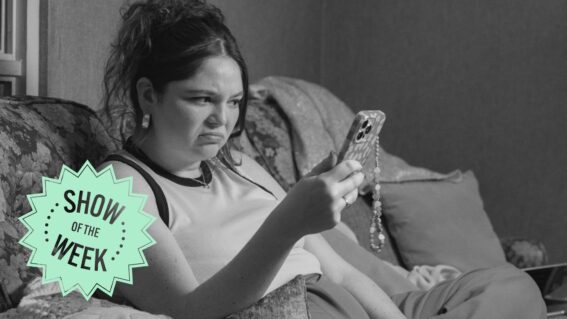3 Shorts from the Busan International Short Film Festival
Born in 1980 as the Busan Korea Short Film Festival (the first such festival in Korea), it later became the Busan Asian Short Film Festival in 2000 and eventually the Busan International Short Film Festival in 2010 (www.bisff.org). Under its new organising and programming teams, it began a festival-defining section called “guest of honour country”, […]

Born in 1980 as the Busan Korea Short Film Festival (the first such festival in Korea), it later became the Busan Asian Short Film Festival in 2000 and eventually the Busan International Short Film Festival in 2010 (www.bisff.org). Under its new organising and programming teams, it began a festival-defining section called “guest of honour country”, hosting France in 2012, China in 2013, and Spain in 2014 (Sweden shall come next!), while still boasting an International Competition, mixing both Korean and foreign shorts together.
My name is Sébastien Simon; I am a nomadic video and filmmaker as well as a member of the BISFF programming team since 2012 (while also collaborating with two other festivals in Korea, and another one in France). Choosing only three short films for this article was obviously a difficult task. Eventually, I decided to write about two Koreans shorts and one Iranian: they were all awarded at the 31st edition of the BISFF, which took place from April 25th to April 29th 2014.
Bishtar Az Do Saat / More Than Two Hours
Director: Ali Asgari
From Iranian director Ali Asgari comes this multi-selected (including the 2013 Show Me Shorts programme) short film about the struggle of an unmarried couple as they face the rigidity of Iranian hospitals’ regulations on the matter of birth control. This seemingly classic tale of how religious and cultural dogmas crush young people’s love and ideals ends on an unexpected and almost surreal note, which is sure to leave you speechless. More Than Two Hours won the Grand Prix for Best Picture, BISFF’s highest award.
Even though the film couldn’t yet be shown openly as it is still touring festivals, director Ali Asgari allowed me to divulge the link to a password-protected version of his film, of which you may also see the trailer below.
Click here for the private screener (PW: sepultura61)
Bishtar Az Do Saat (More Than Two Hours) – Trailer from Ali Asgari on Vimeo.
왜 독립영화 감덕들은 DVD를 주지 않는가? / Where is my DVD?
Director: Gu Gyo-hwan
While its original Korean title actually translates to “Why don’t independent filmmakers give DVDs?”, this aesthetically diverse, sometimes meta-narrative and absurd comedy by actor-director Gu Gyo-hwan follows the mostly unproductive journey of a second-rate actor as he stubbornly attempts to gather the DVDs of the films he acted in, rather than waiting any longer for the directors to finally send them to him. Along the way, he bumps into half-crazy characters; former friends and colleagues, most of whom haven’t found much success either.
While it presents an amusing portrayal of the difficulty to find closure, be it sentimental or creative, and the perils to follow one’s dreams at the expense of one’s comfort, health or sanity, this film actually shows a disturbing truth about the cinema industry as it functions in Korea – and probably elsewhere as well: while newcomers dream of achieving the same worldwide success as their elders (a docu-like scene was even filmed – rather stolen! – during a real Q&A session by Bong Joon-ho, director of the hits Memories of Murder, The Host, Mother and Snowpiercer!), most of them actually only manage, at best, to survive in the “indie” circuit. Where is my DVD? was awarded the Busan Cinephile Award.
엑스 엑스 엑스 / XXX
Director: Kim So-min
This short film won the Operation Kino Award, the second competitive section of the BISFF. In the month that precedes the festival, students from the cinema or communication departments of Busan universities are challenged to make a short documentary. Each team receives a budget of 1 million Wons (about 1130 NZD) and only one instruction: the documentary has to be made in Busan. Directed by Kim So-min, from the Department of Art Culture and Image of the Pusan National University, XXX seems to begin as a somewhat unremarkable interview-based documentary, yet after barely a minute, we get captivated by that often hilarious and totally unscripted heart-to-heart between a mother and her student daughter. Speaking openly for what seems to be the first time in their lives, the two women reach a deeper understanding of each other and their respective generations regarding the oh-so-taboo-in-Korea question of sexual intimacy. Watching them evolve before our eyes makes XXX a truly moving short film – a quite impressive feat for what is essentially a student assignment.
More Than Two Hours and XXX, winners in their respective competitive sections, were both screened at the Closing Ceremony of the BISFF 2014. Although they have been awarded by different jury groups, both films share an obvious thematic connection, making their concomitant projection a surprisingly fascinating and mind-opening experience. Both films offers a back-to-back comparison of Iranian and Korean taboos regarding sex, and how these taboos keep distorting, affecting or dooming families’ and couples’ relationships, even in this age of supposed openness brought upon by the Internet, the social networks and the global access to virtually all forms of culture and contents.























